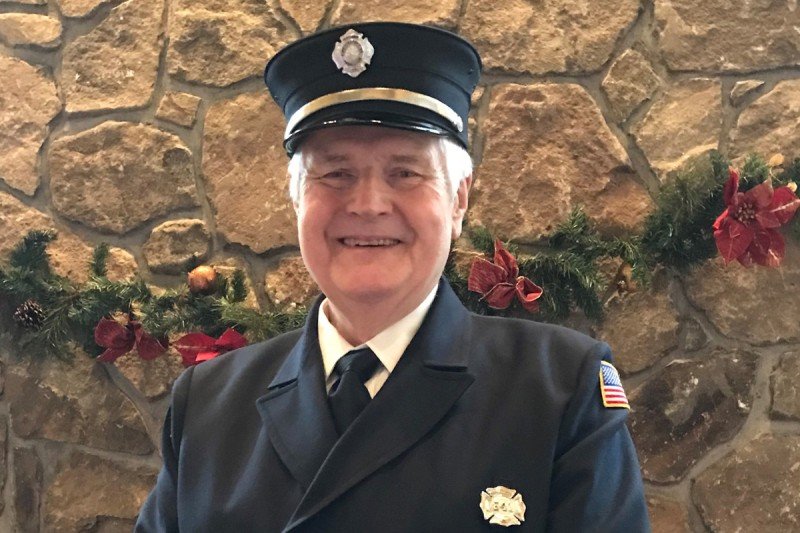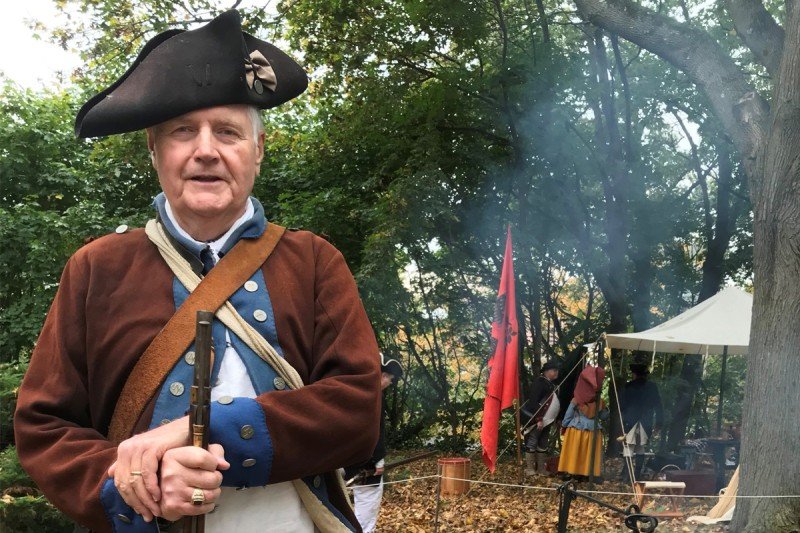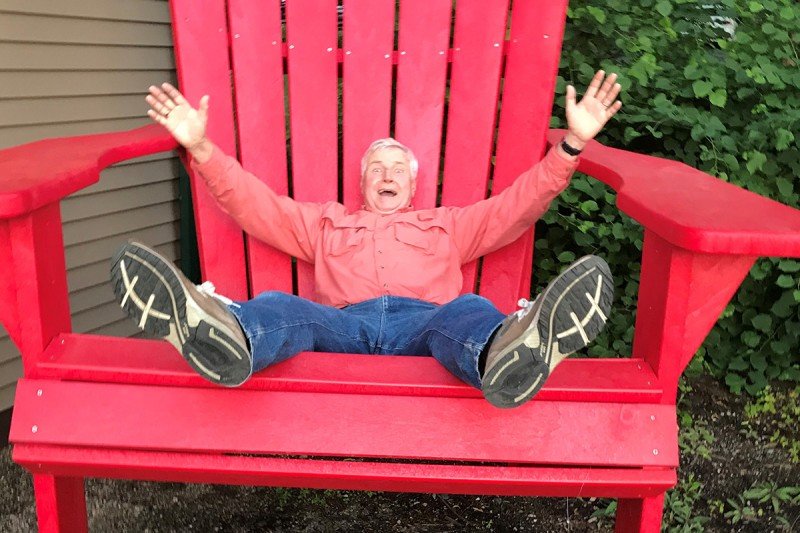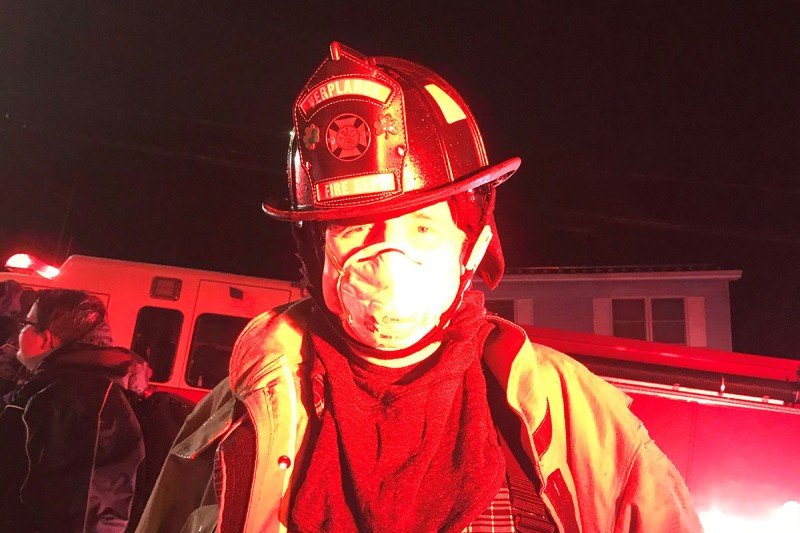
Joe Ryan has always enjoyed the luck of the Irish. A former middle-school teacher and current volunteer firefighter in upstate New York, the 71-year-old was still fit, working part-time, and in good health. But a sudden onset of stomach problems in 2018 caused his wife to worry they could be signs of esophageal cancer. He had already been diagnosed with a hiatal hernia years earlier.
After an examination and biopsy at a nearby hospital, his doctor broke grim news: It was esophageal cancer, one of the hardest-to-treat forms of the disease.
“Being the eternal chicken, I said, ‘What can I do now? Give me your top hospitals and top people,’” Joe recalls.
Shaken and fearful, he traveled for two appointments on consecutive days in New York City. At the first hospital, the doctor told him he had advanced disease, possibly as high as stage 4 cancer. Joe was offered to join a clinical trial, which meant starting chemotherapy right away, followed by radiation and then surgery to remove the tumor. The treatment would be harsh, including side effects making it hard to eat or swallow.
“I’m already thinking, ‘I’m going to be spending my summer constantly coming into New York, getting radiation, and throwing up from chemotherapy,’” Joe says. “I was already worrying about whether I’d be able to take the train or if my wife would have to drive me back and forth. It would be very hard.”
But the next day, everything changed when he came to MSK to see thoracic surgeon Daniela Molena, who was recommended by Joe’s doctor for her expertise in esophageal cancer. After reviewing his imaging tests and PET-CT scan, Dr. Molena said his cancer appeared to be early stage; he might not need such grueling treatment.
“Many places, once they detect any form of esophageal cancer, will give a standardized, cookie-cutter treatment,” Dr. Molena says. “At MSK, we can provide a tailored approach because we have the expertise to make fine distinctions about risk. For example, we’ve learned that for very early-stage esophageal cancer, it’s often better to use a less-invasive approach until we learn more. The difference can be huge.”
She referred Joe to MSK gastroenterologist Hans Gerdes, who did an endoscopic mucosal resection (EMR), which involves removing abnormal tissue from the lining of the esophagus. Dr. Gerdes was able to remove all the cancer.
“I wake up and this doctor explains to me, ‘It looks pretty good down there, but we’ll have to look at the pathology,’” Joe says.
The specimen was reviewed and discussed by Dr. Molena, Dr. Gerdes, and specialists in pathology and radiology at a multidisciplinary team meeting. After careful evaluation, they deemed his case low risk.
Dr. Gerdes delivered the good news to Joe. “He said, ‘I’ll see you in three months,’” Joe recalls. “I couldn’t believe it. ‘See you in three months’ — that’s it?”
Treating Barrett’s Esophagus
The news was a huge relief to Joe, but the MSK team continued to monitor him carefully, because he had a condition called Barrett’s esophagus. It develops as a result of gastroesophageal reflux disease (GERD), when stomach acid backs up into the esophagus. Barrett’s esophagus increases esophageal cancer risk.
“Once Joe’s cancer was treated successfully, we could not take a chance at it coming back,” Dr. Molena says. “We had to treat not just the Barrett’s esophagus but also the underlying GERD, which can push Barrett’s into becoming cancer.”
Through MSK’s dedicated program for Barrett’s esophagus, Joe was treated in stages. Every three months, he came to MSK so Dr. Molena could give a therapy called radiofrequency ablation. This procedure, which takes about a half hour, delivers short bursts of radio waves through a special device that is passed through the endoscope, destroying the abnormal tissue. She also gave Joe strong antacid medicines to treat the GERD.
After five ablations, his Barrett’s esophagus was eliminated and only required monitoring every six months for the next two years. But Joe still had a big hiatal hernia — which occurs when the upper part of the stomach bulges through the diaphragm — that put him at risk the GERD would persist or worsen. Dr. Molena proposed a way of treating Joe’s GERD more aggressively than only with antacid drugs.
“I was nervous that medication alone would not work in the long run,” Dr. Molena says. “I offered him surgery to fix the issue, so he could stop all antacid medications and enjoy food and drink — he definitely enjoys his beers — without having to worry about reflux.”
In 2020, she used minimally invasive surgery to do a fundoplication, a procedure that tightens the valve between the esophagus and the stomach.
By this time, Joe and Dr. Molena had become good friends. Joe regularly brought special chocolates made in Pennsylvania when he visited. Before his surgery, he had a bit of a standoff with the anesthesiologist, as he tried to smuggle the chocolates into the operating room in his gown. He wanted to deliver them to Dr. Molena personally.
“She said, ‘You can’t take those into the operating room!’” Joe recalls. “I said, ‘Yes, I can. They are for Dr. Molena and the team. They are saving my life.’ She got on the phone with Dr. Molena, and they were both laughing about it. They finally talked me out of it. But they got their chocolates.”
An Irishman’s Zest for Life
Dr. Molena continues to monitor Joe but says his prognosis is excellent — a 90% chance of being cancer-free five years after treatment.
Joe remains eternally grateful to Dr. Molena, not only for his cancer treatment but for her calm, confident manner. “I give her an A-plus for how she made me feel,” he says. “When you walk in with a cancer diagnosis, you’ll never be that scared, and esophageal cancer has pretty grim numbers. She is dealing with tough stuff every day, but it hasn’t affected her ability to convey warmth, stay positive, and say, ‘Let’s really go after this thing.’”
Now 75, Joe has not slowed down. He’s continuing as a volunteer firefighter, spending time with his grandchildren, and taking his boat out on Chateaugay Lake. He also is active doing staff development for teachers, students, executives, and the general public as part of the Living History Education Foundation, an educational organization he founded that helps students act out historical events and practices.
“I’ve already gotten four great years; everything during that time has been cake,” he says. “My advice is: If you get a strange symptom, deal with it right away rather than shoving it under the carpet. We are lucky to have MSK so close.”
Dr. Molena has a special bond with Joe. “I enjoy hearing his stories about teaching history and his work as a volunteer in the fire department,” she says. “I look forward to celebrating his five-year milestone in 2023 and giving him the esophageal cancer survivor pin!”
- Joe Ryan had early-stage esophageal cancer and was recommended to have intense treatment.
- A second opinion at MSK determined that a less-invasive approach was safe.
- This allowed Joe to avoid harsh effects of chemotherapy and radiation.
- After the cancer was removed, Joe was treated and closely monitored by MSK’s Barrett’s esophagus program.


